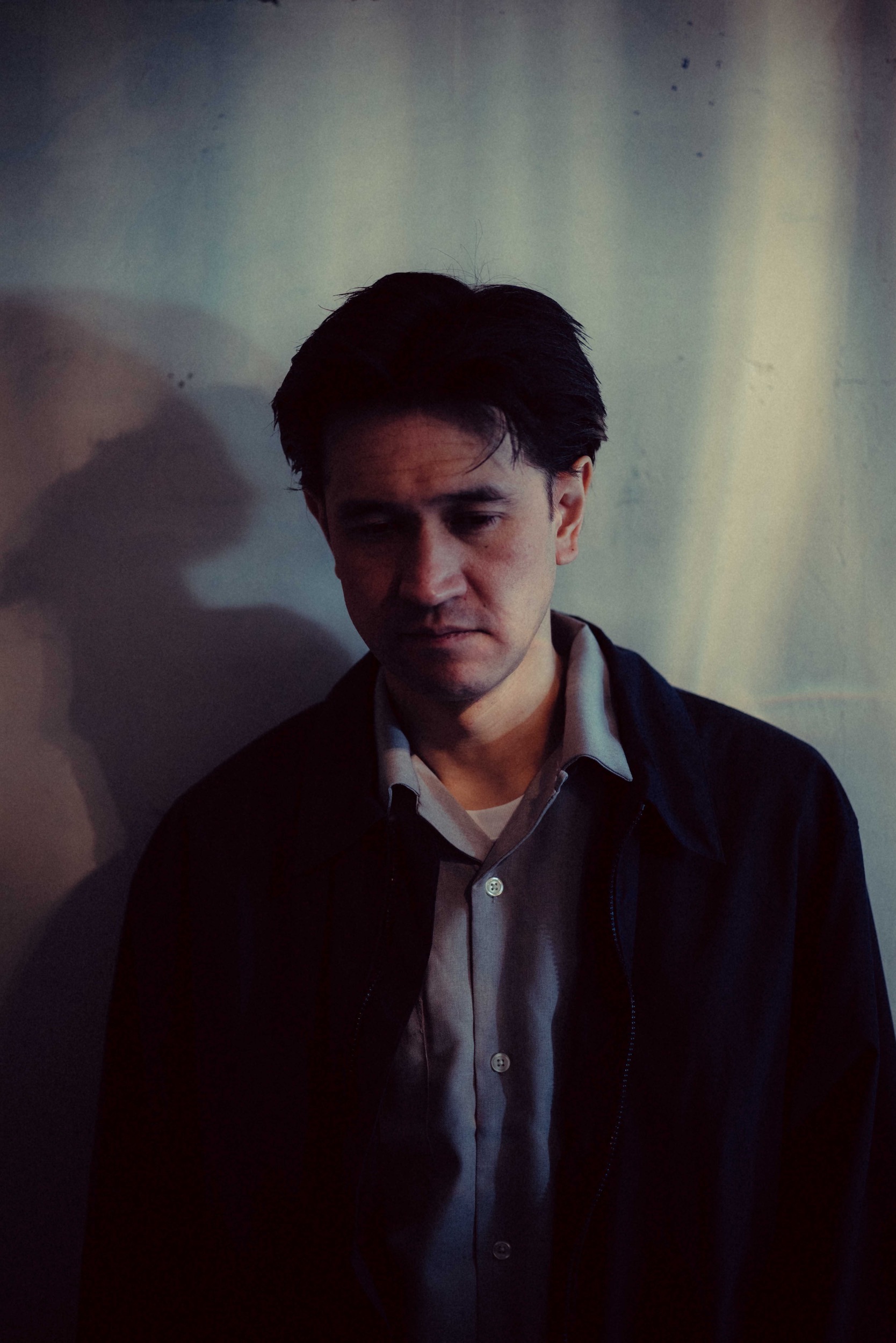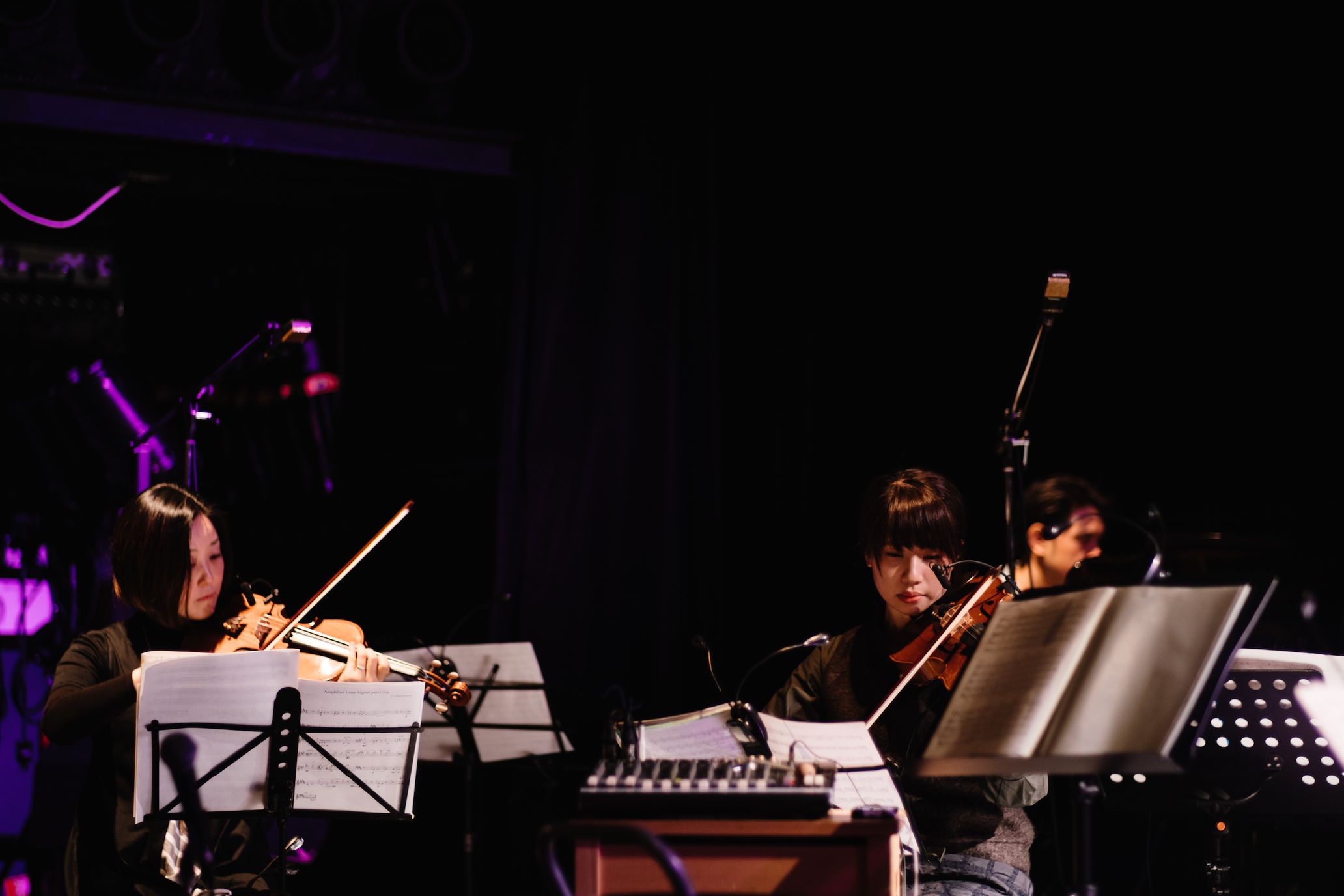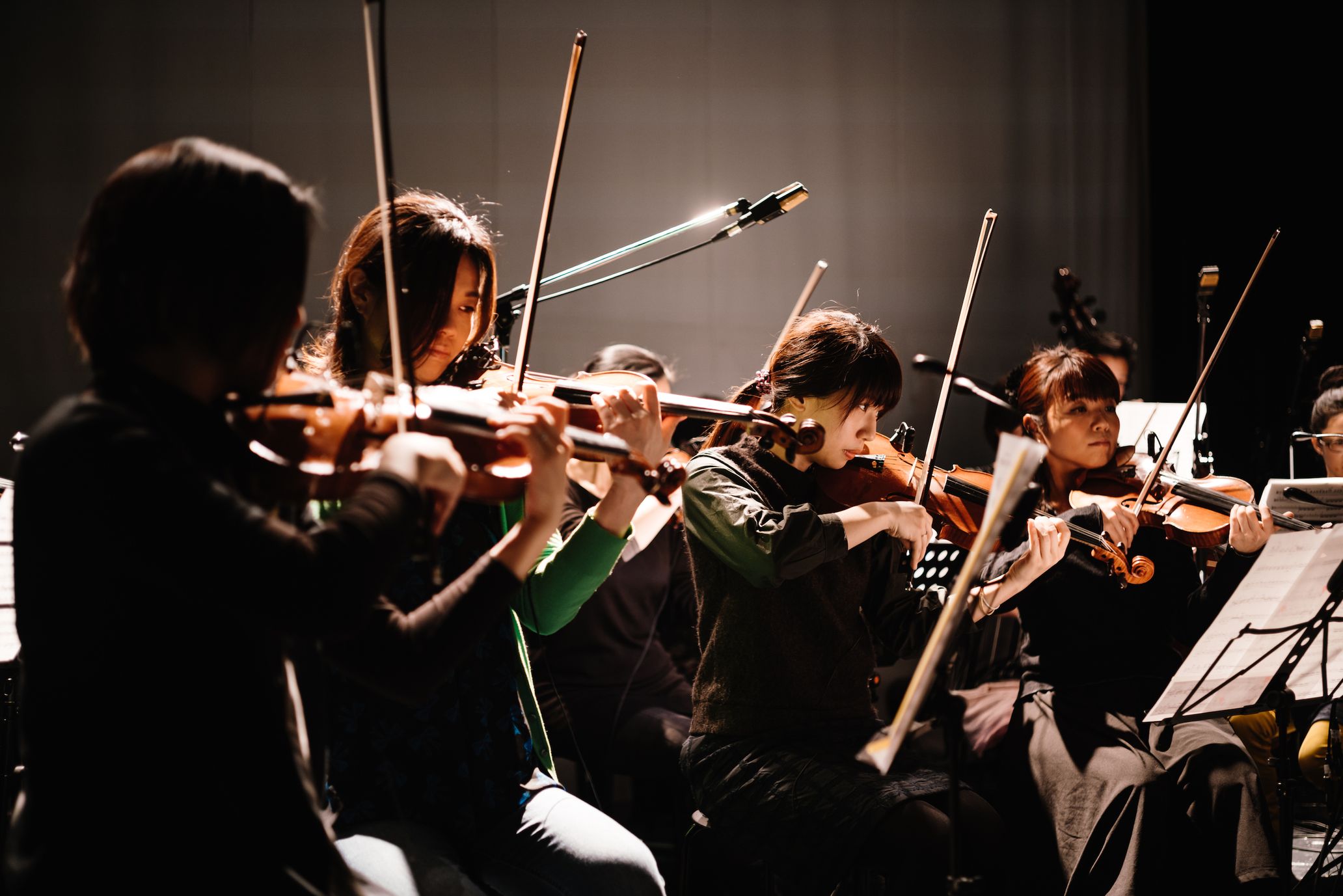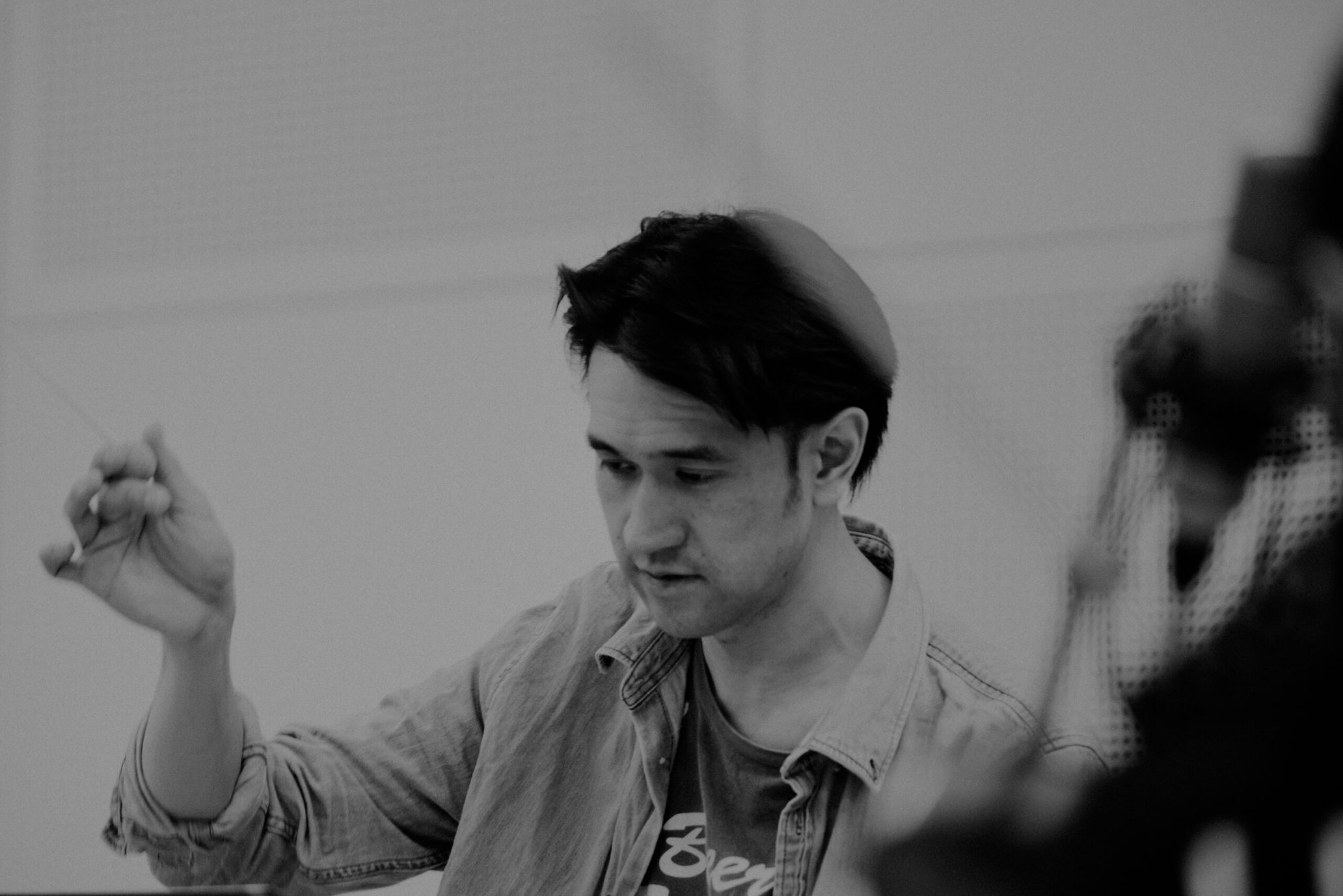Takuma Watanabe is a musician who works across genres, including contemporary music, pop, and film scores. Meanwhile, Yayako Uchida wears many hats—including that of essayist, translator, and actor. The two, who used to work together as part of the musical group sighboat, reunited for the first time in a long while for this conversation. This is the second half of the resulting two-part interview. In part one, we discussed Watanabe’s new album, Last Afternoon. In part two, TOKION examines where the two talents get their creativity. We spend more time at home because of covid-19; how has this change of circumstances affected them? What drives them to make things? With the aid of keywords such as art brut (outsider art), magic, piano, and others, we learn about Watanabe and Uchida’s attitudes towards creating.
2. Yayako Uchida Photography Chikashi Suzuki
Making a discovery through producing and living in a pandemic
——Takuma, you made your latest album, Last Afternoon, in this pandemic. What effect did covid-19 have?
Takuma Watanabe: Right after the pandemic hit, I started working on two film scores. The director and I would have meetings over Zoom and whatnot. I tried out many things. It was a situation where I had to adapt and act with my instincts. What influence did that have on the album? Well, I’m in the middle of checking the feedback on that.
——So, you’re figuring it out as you go.
Takuma: Right. I want to place importance on organically coming up with things like, “Let’s try this out” whenever I speak with my friends. For instance, I want a friend to send over an audio file of them performing and mix it with a track I’ve prepared or put together audio tracks recorded in different places. I feel like such experiments could be fun.
——Perhaps you’re able to come up with new approaches because we’re in a predicament today. What about you, Yayako?
Yayako: I’ve never lived in a time where we had to stay indoors as much as possible and avoid touching other people. What I experienced during the first state of emergency announcement influenced me in particular. For example, I have a ten-year-old child, and he tells me things like, “I’m going to make [something] out of clay. Watch me until the end.” Usually, I would make excuses and not go along with it because I’m busy. But when the announcement was declared, I had a lot of time to spend at home. I thought, “I’m going to watch what my kid makes without thinking about anything else,” and I felt this indescribable sense of liberation. It made me question why I had been trying to live life so fast.
——You could stop in your tracks and think?
Yayako: Kids live their life by focusing only on what’s in front of them, right? They’re the very [embodiment of] “be here now.” It might be over-the-top to say sharing that joy is priceless, but it made me realize how important it is. Also, we have an old piano at home, and I sometimes practice playing it with my son. It’s not to achieve anything. I feel joy when I press down on the keys, and the sounds reverberate inside me. It was like my five senses were sharpened in an environment where other information was chipped away. Though it’s far from perfect, I write, and I would be happy if somebody read my writing and felt something. I had been unaware of the importance of living and writing, making sounds with a piano, and watching my kid breathe in front of my eyes. I mean, these are basic things in life.
What’s Takuma Watanabe and Yayako Uchida’s source of creativity?
——That’s a huge realization.
Yayako: Also, what left an impression on me regarding work is no art, no life, a show on NHK Educational TV, which I’m a narrator of. It introduces self-taught people who make artwork that can be called art brut (outsider art). For instance, there’s this grandpa who’s a barber and continues to make masks. Masks of different types cover the walls. But he doesn’t make the masks because he wants to show them to someone. For the grandpa, the process of making masks is what’s important. I think it’s the same thing as eating and sleeping for him.
——Art is a part of their lifestyle for people like him.
Yayako: Yes. Upon seeing such people, it made me think, “What does it mean to express something, anyway?” So, I want to ask this, Takuma: where does your motivation for being creative come from? Mine is quite all over the place, but can you trace the root and create work?
Takuma: For me, the very process of creating is fun. Once I finish a piece, I already start thinking about the next thing. Releasing a complete piece of work to the world is a different process from creating something. It’s like I’m not satisfied with it. How can I make my creation land [where I want it to]? That’s what I worry about all the time.
Yayako: How do you view the act of playing your music live?
Takuma: Personally, the songs I release as an album are complete at that point. It’s fun to play live, but it’s hard to replicate the songs off an album, and there’s music that’s suitable for different events and formats. I want to treat live shows as spaces to create too. I want to document that to release it as an album.
Yayako: As an entirely different thing.
Takuma: Yeah. For me, the act of creating is my motive. When I was a kid, I wanted to become a magician. Like performing music, you need skills to do magic, no? But as I got to know the context of magic, my interest shifted from polishing [my magic] skills to building magic sets. I would come up with original magic tricks and write an explanation about how they work too. I feel like that process is quite similar to [songwriting].
——Both magic and music are illusions. Both can change the setting in an instant.
Takuma: I also use a computer to produce music, but the primary tool I use to write songs is sheet music. I like how an image emerges whenever I write or read sheet music. Writing notes onto sheet music is simple, as you can do it if you have manuscript paper and pencil. But beyond the musical notations awaits a different world. That’s the intriguing part.
“I believe in fate”- Yayako Uchida
——It’s interesting how Watanabe-san’s well of creativity stems from magic. Yayako, do you have any sources regarding creating things?
Yayako: I completely go with the flow. Like, I started singing and reading [my work] aloud when I met Takuma-san, and I started writing when Michio Akiyama read my letter and said, “Try writing an essay.” I’ve been doing things passively and with little ambition, but I believe in fate. It’s fun to gain inspiration from that, and I always expect the unexpected to happen.
——Your origins lie in your encounters?
Yayako: Yes. Everything starts with meeting people.
Takuma: You even have a book called Kaikenki (published by Little More) (laughs).
Yayako: True (laughs). I write picture books as well. But I can only write a story after being shown the drawings first. I don’t have the urge to write a story from scratch. I don’t have the desire to express anything. That’s why I think it’s cool when people have something sacred like Takuma, like “This is what I genuinely want to make.” I can’t ever be like that, so I admire it.
Takuma: I have an obsession, though, like “If I don’t have this, then what can I do?” I can’t sit still when I’m not working on something.
Yayako: Like a workaholic?
Takuma: I wonder. I think a part of me is like that, but making music of my own, not for work and someone else, is like a daily routine. Continuing to do this every day differs from studying or practicing. For example, unless you play the piano every day, you’d no longer be able to play it. But I don’t enjoy playing it every day for that [purpose]. So, I recently let go of playing the piano.
Yayako: What! That’s shocking to hear. What do you mean you let it go? Did you become uninterested?
Takuma: Hmm. I feel like I no longer adhere to the role of a pianist.
Yayako: How long have you not played it?
Takuma: I think I haven’t played it for over half a year.
Yayako: Wow! I spoke to Ryuichi Sakamoto over the phone the other day (as seen in Shukan Bunshun WOMAN published by Bungei Shunju), and he said that he used to think of his concerts as practice. He told me he had a cocky side like that. Because his stamina is declining now, he shyly said he plays as much as possible because he wouldn’t be able to unless he practices every day.
Takuma: I started playing the piano late.
Yayako: What age was that, again?
Takuma: Around 16 years old. In the world of classical music, it’s too late. Besides, to me, the piano is the same as a typewriter. It’s one tool to write music. If my fingers move just enough to press the keys, that’s fine with me. The time I spend touching my computer keyboard is increasing as of late, and it’s not that different from touching the piano.
Yayako: I see. So, is COMBOPIANO over?
Takuma: It’s not over (laughs). I would have to ask (bandmates) (Kazuhisa) Uchihashi and Senju (Muneomi), but even if we’re not active right now, we might get together again at some point. It’s like making a movie; people come together quickly, make something by sharing ideas, and go separate ways once it’s finished like, “Thank you.” I don’t hate that sort of relationship. I don’t constantly have to be doing things with someone else.
——Is it easier to do a solo project than a band?
Takuma: Yes. But I can’t play the piano well enough to perform with Uchihashi and Senju. I need to practice a bit.
——Perhaps you could join them with [an instrument] aside from the piano. If you were to start sighboat again, I feel like it would be distinct from your past work.
Yayako: I want to try doing it again.
Takuma: Did we release our second album in 2010? Since then, the three of us have been through various changes. I’m interested in how that would manifest in the sound.
Yayako: Even if we’re not like, “Let’s make an album!” if we’re like, “Let’s try making one song remotely,” then we might make something lighthearted and fun while each of us lives life separately.
Takuma: We don’t have a characteristic unique to sighboat, in a good way, so we should play what we want whenever. I think we’ll have an approach that’s different from before. I want to try something that has no connection or relationship to our two previous albums.
Yayako: I’d love to join you on that adventure!
Takuma Watanabe
He studied composition and music technology in 1997 at Berklee college of music in Boston. In 2007 he joined the world tour of David Sylvian performing with synthesizers and computer and played 28 concerts. In 2014 he founded a string ensemble with computer technology which has been giving public performances of contemporary and drone music. In 2010 he started his film composing career. He has performed or collaborated with, Jonas Mekas, David Sylvian, Joan La Barbara, Kazuhisa Uchihashi, Akira Rabelais, Félicia Atkinson, Tatsuhisa Yamamoto, Seiichi Yamamoto amongst others.
Yayako Uchida
She was born in Tokyo in 1976. She is involved in the world of words and sounds; she mainly writes essays, but also translates, writes lyrics, plays in a band called sighboat, and does narrations. She is also a mother of three. Her recent publications include a book co-authored with neuroscientist Nobuko Nakano, Nande Kazoku Wo Tsuzukeru No? (Bunshun Shinsho). She has translated picture books including Ping (Poplar Publishing), Blanket & Bear, a Remarkable Pair (Hayakawa Publishing), and Maman (Pie International). Her essay series, “BLANK PAGE” can be found in the quarterly magazine, Shukan Bunshun WOMAN. She is also a narrator on the NHK Educational TV Program, no art, no life.
Translation Lena Grace Suda







